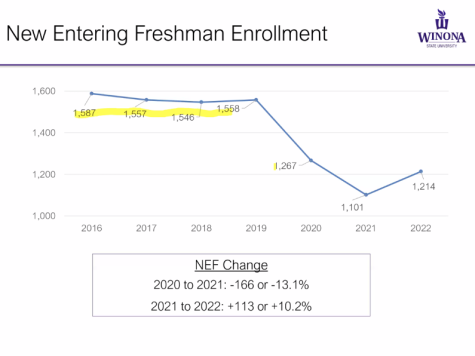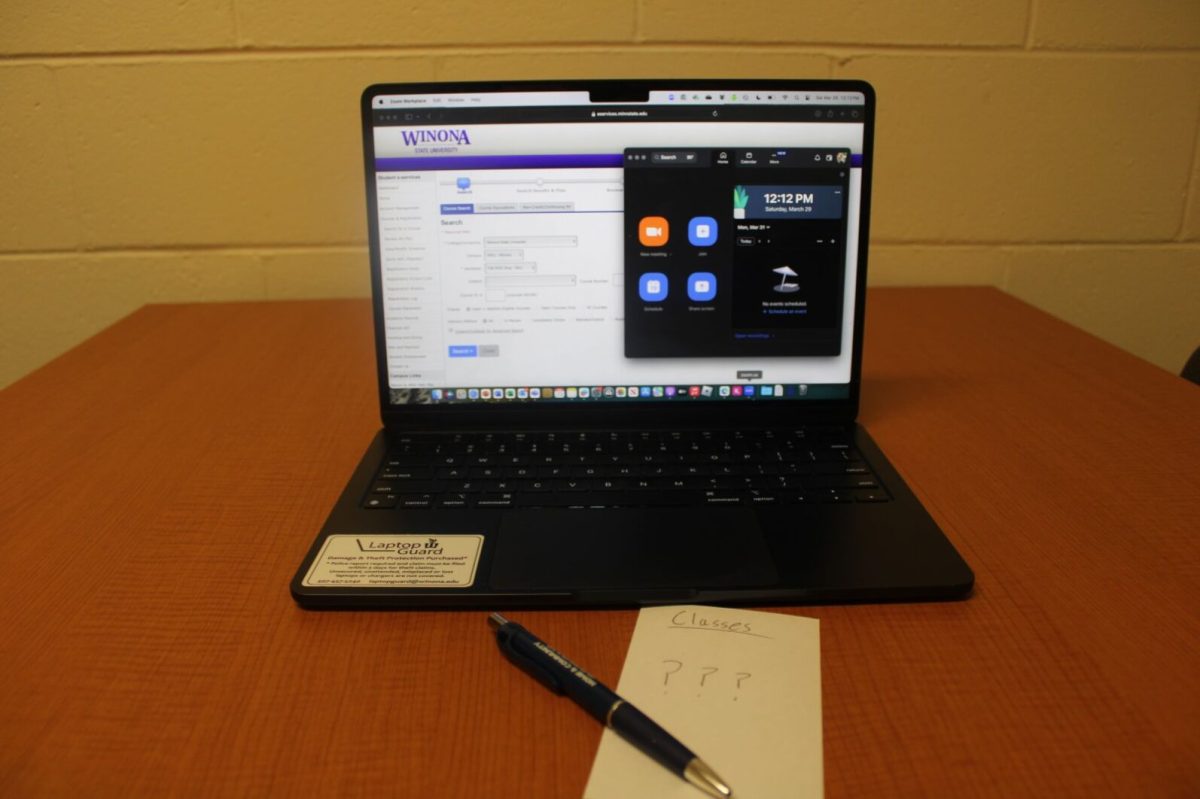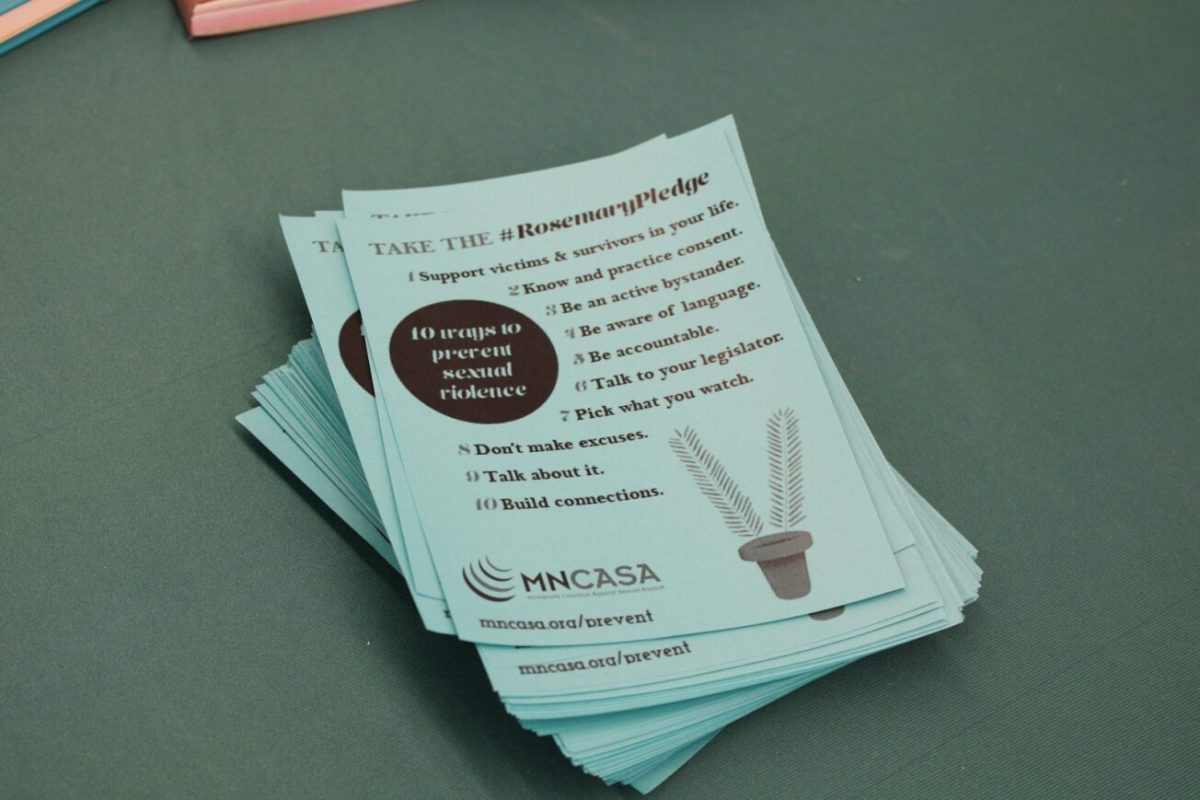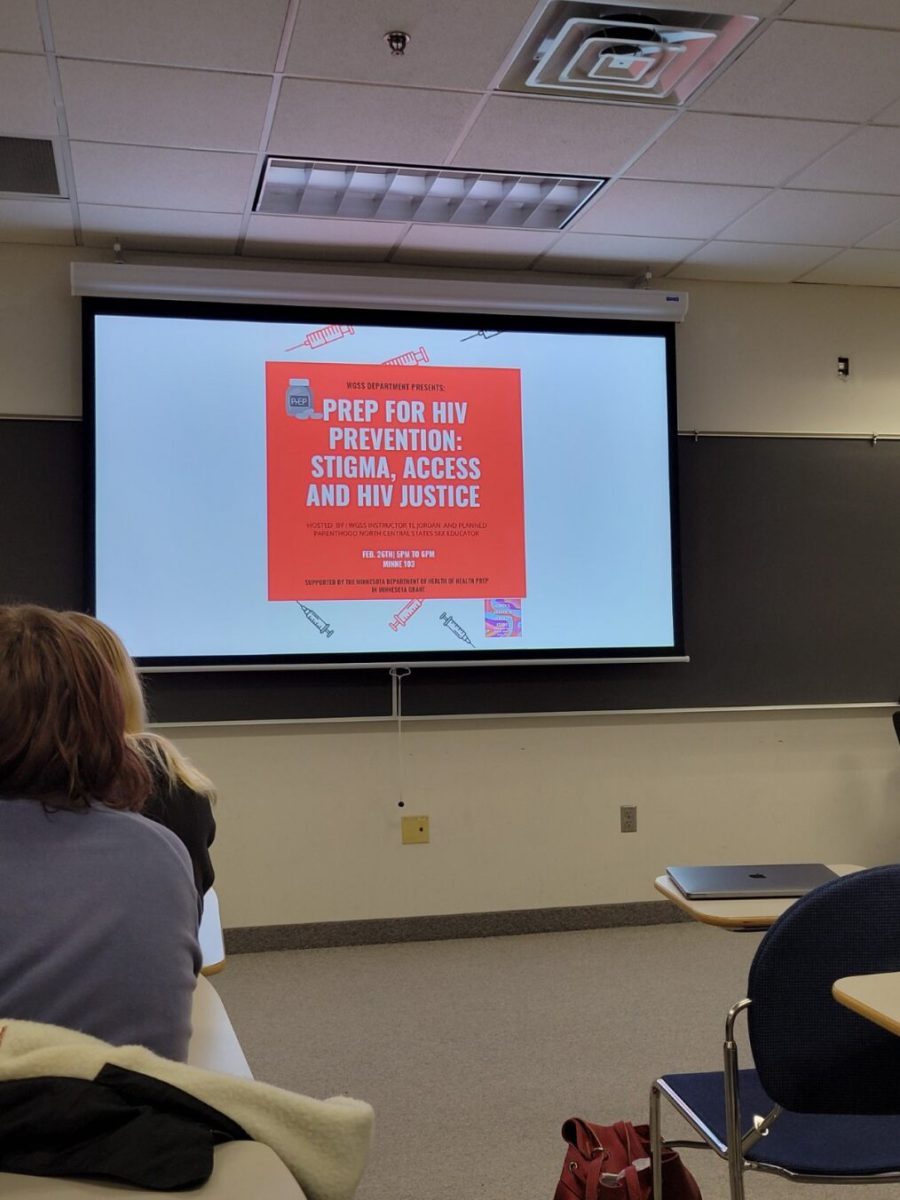Inflation and expectations for WSU’s FY24 budget
Winona State University has experienced an 18% decrease in its budget since 2018. An all-university budget meeting was held on March 15 to go over the inflation and expectations for WSU’s future.
March 22, 2023
On March 15, Winona State University’s budget meeting covered both the highs and the lows that can be expected this upcoming school year. Vice President of Finance and Administration Scott Ellinghuysen presided over most of the meeting along with President Dr. Scott Olson.
Increased spending on programs combined with lower university enrollment have greatly impacted the budget. Enrollment for Winona State has experienced a 5.4 percent decrease since spring 2022 and a 18 percent decrease since 2018.
The competitive marketplace for students has required more money to be funneled into scholarship funding. In the last three years, general fund scholarship expenditures have increased from $750,000 to $2.7 million.
Inflation impacted several areas, including increasing costs for things like interpreter services, liability insurance and workers compensation, as well as food prices and energy costs.

Despite the high inflation rates, the Winona State administration is hoping to limit the impact on students.
“We’re looking at a 0 percent board increase, so we’re trying to keep those costs down for our students,” Ellinghuysen said.
Ellinghuysen also stated that as of now, the university does not plan on laying off any existing personnel or reducing the current operating budget.
Several Winona State students have expressed concern for what they would like prioritized within the budget. Answers varied, from parking situations to department and program issues. One of the biggest suggestions from students was funding and focus on mental health resources.
Makenna Sommer, a third-year at Winona State, thought more mental health resources could be helpful for students.
“We do have great mental health services, but I do think you can always budget more into it,” Sommer said.
Cheyenne Halberg, a fourth-year at Winona State, agreed that funding for mental health services should be prioritized.
“After COVID, there has been a huge decrease in students’ mental health, and I think easier access to those healthcare professionals would be beneficial,” Halberg said.
Halberg also brought up the lack of psychiatric professionals on campus and the difficulty in accessing the few who are available.
“I remember trying to schedule an appointment with a therapist or counselor on campus, and it was a three month long waiting list,” Halberg said.
Halberg and Sommer both felt that certain programs and services, like Tevera, should also be covered in the budget or by tuition, rather than being paid for out of pocket by students.
Ellinghuysen relayed some exciting news for students from the Capital. Senate is currently reviewing a bill that would offer free tuition for the first two years of college. Senate is also considering implementing a tuition freeze.
Winona State is anticipating that Senate will pass an investment bill which would assist in the construction of the new CICEL project. This project concerns the upcoming replacement building for Gildemeister and Watkins Halls.
The full FY24 Budget can be accessed here: https://www2.winona.edu/fiscalaffairs/budgettoolkit.asp.













































Cheyenne Halberg • May 11, 2023 at 12:49 pm
This piece is extremely well-written. I like that you asked students’ and administrators’ opinions on the topic.